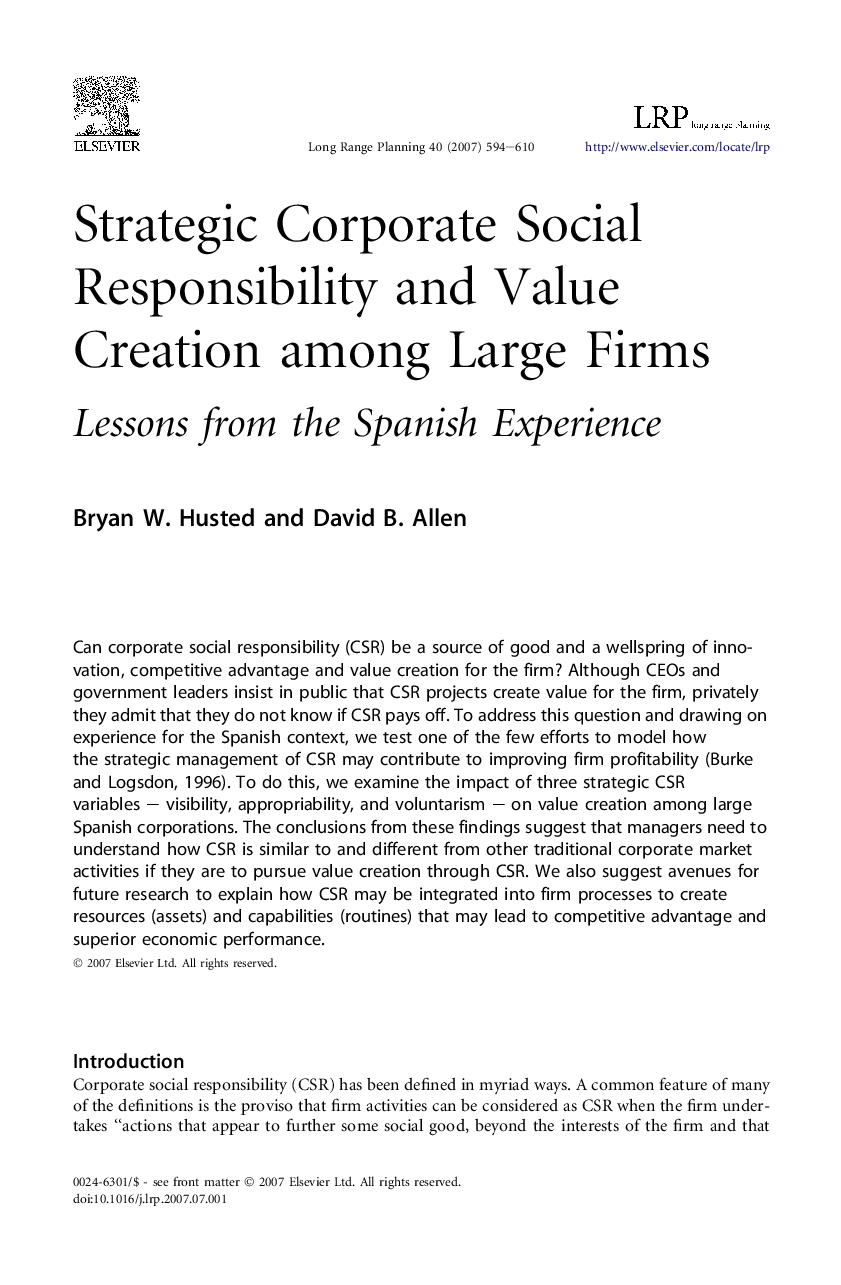| Article ID | Journal | Published Year | Pages | File Type |
|---|---|---|---|---|
| 1021627 | Long Range Planning | 2007 | 17 Pages |
Can corporate social responsibility (CSR) be a source of good and a wellspring of innovation, competitive advantage and value creation for the firm? Although CEOs and government leaders insist in public that CSR projects create value for the firm, privately they admit that they do not know if CSR pays off. To address this question and drawing on experience for the Spanish context, we test one of the few efforts to model how the strategic management of CSR may contribute to improving firm profitability (Burke and Logsdon, 1996). To do this, we examine the impact of three strategic CSR variables – visibility, appropriability, and voluntarism – on value creation among large Spanish corporations. The conclusions from these findings suggest that managers need to understand how CSR is similar to and different from other traditional corporate market activities if they are to pursue value creation through CSR. We also suggest avenues for future research to explain how CSR may be integrated into firm processes to create resources (assets) and capabilities (routines) that may lead to competitive advantage and superior economic performance.
